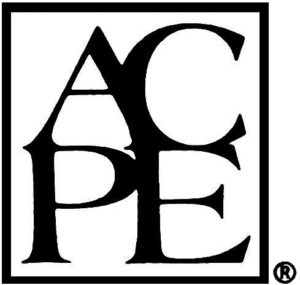Due to concerns of the COVID-19 outbreak, we have decided to CANCEL this event. Please stay tuned for a new date.
We will reach out to all that have registered when a new date is decided.
Earn 2.5 CME Credits!
Join NATF for the final installment of an educational series focusing on anticoagulant-associated bleeding. Hear effective new strategies to treat and manage patients with anticoagulant-associated bleeding from key opinion leaders. Discussions will include warfarin-related bleeding, best practices to minimize bleeding in a patient having a procedure, treating major bleeds while on a DOAC, and strategies for anticoagulant-vulnerable patients.
This special dinner program is designed for:
- Cardiologists
- Vascular medicine specialists
- Pulmonologists
- Neurologists
- Emergency medicine providers
- Neurocritical care providers
- Hematologists
- Nurse practitioners
- Physician assistants
- Hospital-based pharmacists
Discover:
- The epidemiology of and risk factors for anticoagulant-associated bleeding
- Pathways for management of anticoagulant-associated bleeding in patients taking warfarin or direct oral agents
- Management approaches for anticoagulated patients requiring invasive procedures
Learning Objectives:
- At the end of this activity, participants should be able to:
• Identify factors that drive bleeding risk in patients on anticoagulation
• Describe strategies to prevent or minimize anticoagulation-associated bleeding
• Determine when to use anticoagulation reversal agents
• Assess the balance of bleeding and thrombotic risk in anticoagulated patients who require a procedure
Registration for this free program includes:
- Full educational program
- Dinner
- Printed syllabus
- CME credits
Continuing Education Credit
Physicians
This activity has been planned and implemented in accordance with the accreditation requirements and policies of the Accreditation Council for Continuing Medical Education (ACCME) through the joint providership of ScientiaCME and NATF. ScientiaCME is accredited by the ACCME to provide continuing medical education for physicians. ScientiaCME designates this educational activity for a maximum of 2.5 AMA PRA Category 1 Credit(s)™. Physicians should only claim credit commensurate with the extent of their participation in the activity.
Nurse Practitioners (NPs)
The American Academy of Nurse Practitioners accepts AMA PRA Category 1 Credit(s)™ from organizations accredited by the ACCME. ScientiaCME will provide NPs who successfully complete each activity with a certificate of participation indicating that the activity was designated for AMA PRA Category 1 Credit(s)™.
Physician Assistants
The American Academy of Physician Assistants accepts AMA PRA Category 1 Credit(s)™ from organizations accredited by the ACCME.
Nurses
Nurses may claim credit for activities approved for AMA PRA Category 1 Credit(s)™ in most states for up to 50% of the nursing requirement for recertification.
Medical Practice Executives
The American College of Medical Practice Executives accepts AMA PRA Category 1 Credit(s)™ from organizations accredited by ACCME.
Pharmacists
ScientiaCME is accredited by the Accreditation Council for Pharmacy Education (ACPE) as a provider of continuing pharmacy education. This activity is approved for 2.5 hours (0.25 CEUs) of continuing education. Proof of participation will be posted to your NABP CPE profile within 4 to 6 weeks to participants who have successfully completed the post-test. Participants must participate in the entire presentation and complete the course evaluation to receive continuing pharmacy education credit. ACPE # 0574-9999-20-003-L01-P. This activity is a Knowledge (K)-type activity.
While participants have one calendar month after the activity to provide learner information and take the post activity assessment and evaluation on ScientiaCME’s website, the course is only valid for credit on the day of the activity. Successful completion of the post-test and activity evaluation is required to obtain a certificate of completion.
Additional details for this past event are no longer available.
